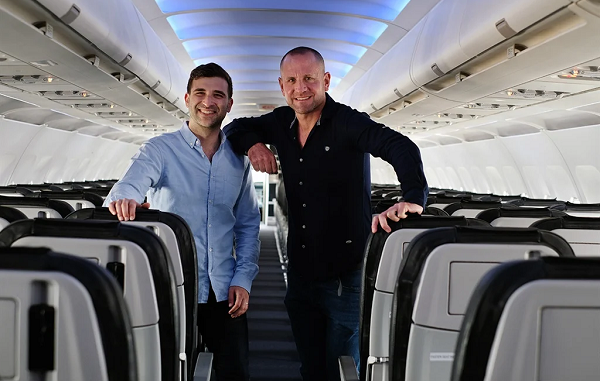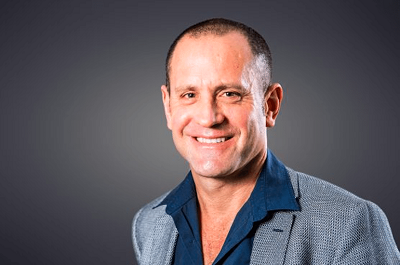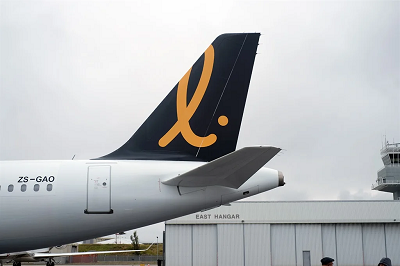

Founder: Turnaround Talk
When Muhammed Ali was sitting in isolation – having been barred from fighting because he refused to be drafted into the Vietnam War – he was watching a heavyweight title fight between “Smoking” Joe Frazier and George Foreman. Ali was expecting to fight Frazier, but when Foreman knocked Frazier out, the heavyweight division was disrupted to its core. We have seen a similar blow in the South African airline industry. Everyone expected Comair to successfully navigate its financial distress because it had a lucrative business model. However, the external risk of the significant increase in airline fuel disrupted the airline industry to its core.
The Comair liquidation has disrupted the airline industry to the extent that experts believe that the future of low-cost airlines in this country are numbered. Airline industry veteran, Gidon Novick (CEO of the Takatso Consortium who are the strategic equity partner of SAA) spoke to BizNews about the future of the South African airline landscape. Below is a snippet of the interview.
On whether Lift’s opportunities would be better or worse had Covid-19 not happened
Yeah, I know. I wouldn’t be back in. I don’t think Covid-19 was the opportunity. It was at a time when, you know, existing players were taking major strain.
They were assets that possessed incredible skills available to the industry and were looking for something to do. I had a lot of time to think about it. It was just a confluence of factors and it felt like an opportunity for some kind of industry reset; which has played itself out, particularly over the last month or so.
On leaving Comair and what happened subsequent to that
The business has a very long history, a 75-year history. My dad was involved for 50 years. I was there for about 13 years. We left together about 10 years ago. At the time, they would say it was Bidvest that was getting involved and there was a difference. We had a difference in view on strategy in the business and it was time to move on. I was excited to try other things, my dad was getting on in years and, you know, he wanted to spend more time with family. So it was an opportune time to leave the business. I was actually happy to be out of the industry. It is very draining; incredibly interesting, challenging and exciting, but it’s draining. So I was happy to be out. And then Covid-19 came along and the opportunity was just too tempting to pass up.
Given what was happening with Comair, it had gone into business rescue prior to that. They had been under enormous pressure for a long time before the pandemic and there were many factors. I mean, it’s probably a few hours of conversation and maybe some subjective views of things that went wrong and things that could have been done better. I think with anything in business, there is this bad luck that comes your way as well as good luck. There are decisions made along the journey that, in my view, at the end of the day, determine your likelihood of success. So, that was a long story. I don’t know which part you want to chat about but the company was in trouble long before Covid-19.
On the new shareholders who came in and the other bidders
I think there were two bidders; Harith was one of them. Harith is the partner in the ticket consortium, on SAA. And then there was the business rescue. I think they call themselves the Rescue Consortium, which ended up taking ownership of the business.
On Harith being a partner in the new SAA
As you are well aware, it still has some way to go in terms of the process, the agreement, a lot of conditions and precedent. That is still quite a journey, the SAA one.
Our involvement in SAA is that we are a minority shareholder in the consortium. That cuts our consortium at this stage; we’re not involved in the running of this at all. We would love to help in some way going forward but we’ve got to figure all of that out. We are busy at the moment with Lift and the opportunities being presented to the market, which is taking up just about all of our focus.

Photo By: Supplied
On if he’s looking to expand the frequency of the Joburg/Cape Town routes and looking at other routes for Lift
We will grow. I mean, the trick with the industry and where the industry has really kind of done itself over the years is over-capacity. This crazy idea that you build capacity for the peak periods. I was thinking of an analogy with the new Top Gun movie. You mentioned all the movie cinemas across the country geared up the capacity for the launch of Top Gun. That is a … I don’t know … maybe a one- or two-week event.
And then they’ve got to fill all those seats for the rest of the year. As an industry, we make that mistake all too frequently by trying to create capacity that caters for the peak; responsible capacity is critical for the industry, including ourselves. It is a slow, steady growth. And understanding the seasonality we inevitably have.
We have very strong summer months in South Africa and then quite a big drop off over the winter period, which is critical. The other major effect is the oil price. The current oil price makes air travel unaffordable to most people. Many people who could afford to fly a year ago, cannot afford to fly now. So the market size has reduced significantly. You had a big recovery and not quite a big pullback just in terms of the affordability. Just to give you a sense: the return flight to Cape Town, just in terms of a seat cost – assuming we sell almost every seat on the flight – costs an airline about R3,000. And we are a pretty efficient airline.. If you are paying less than R3,000, you must realise somebody else is subsidising your seat in some way.
On whether this opens up more opportunity for business class passengers
This is interesting because, again, traditionally, business class or business travellers would pay more and subsidise leisure travellers.
Leisure travel would take advantage of that and book ahead of time and get a really good deal. Now that business travel, in particular, is coming back slowly – although it is nowhere near where it was pre-pandemic – there is a real question as to whether there will be enough of this cross-subsidisation between business travel and leisure travel. There are many dynamics in the industry that we are having to adjust to in a completely new environment.
On where Lift stands in relation to FlySafair, Mango and Kulula
I mean, in simple terms, we are a low-cost premium airline. So what does that mean? Is that low cost? It is our cost base, which is kind of what is happening in the background and how we manage the business effectively. But the customer doesn’t particularly care about that. They care about the price we charge and the service we offer and the price must be competitive for us to be in the game.
On the product side, that is where we’ve identified a real opportunity to create a premium product; everything from the actual experience onboard and the incredible crew who really enjoy serving people. It is part of their DNA. Then there are the other things: a snack onboard, a late afternoon drink, and then crucial elements like flexibility. We picked this up very early. I think our timing was fortunate during Covid-19 because flexibility must be part and parcel of buying a flight ticket. The ability to change and cancel without being penalised and the ability to do it seamlessly was something we offered as a kind of cool proposition right up front. That has gone really well because even though most people don’t change the ticket or cancel, they really value the fact that if they choose to, they have that option.

Photo By: Lift
On insurance against airlines going bankrupt
If you look at the stats, South Africa has had close to 10 airlines in the last 10 years that have either gone bankrupt, into business rescue or disappeared in some way. People have just been left high and dry. Some have been able to claim back their tickets through their banks and credit cards. We believe it is necessary to have legislation in place. As you know, tickets are bought in advance of travel dates and should be protected.
They should be in some kind of an escrow structure; if something happens to that airline, those passengers get their money back straight away. We will be working with the regulators to try and convince them that this is an important part of the industry because at the end of the day, what the industry needs is strong, sustainable competitors. You need players that passengers can trust are going to be around. And if they screw up their business in some way, the customers are not funders of the business. These people have just bought a ticket to visit their relatives somewhere in the country. They should not be funding the cash flow bailout.
On how he sees the South African airline industry evolving in years ahead
South Africa is not the best place to have an island. Geographically, we are the southern tip of Africa. If you compare us to a country like Ethiopia. That is very well placed; not only on the African continent, but almost on an East-West basis. It is able to connect to many points in many destinations. We are quite limited here. We have quite a robust market. I mean, in rand terms, post Covid-19, the domestic market will be worth about R20bn.
However, the growth has to be up north, not only in terms of services into continental Africa and destinations to our north, but also in terms of the skills and the infrastructure. One of our core beliefs is that South Africa has the resources, the skills and the infrastructure in many industries. Aviation is one of them. We can serve the continent with those capabilities. Our aspiration is to build a strong, high-quality airline. It doesn’t have to be massive in scale, but it has to be the highest quality we can achieve. To export those skills into the continent and to build a viable, sustainable aviation sector, which was massively impacted by Covid-19. Outside of a handful of carriers, Ethiopian Airlines has been the most impressive. There are very few sustainable, competent airlines on the continent.




